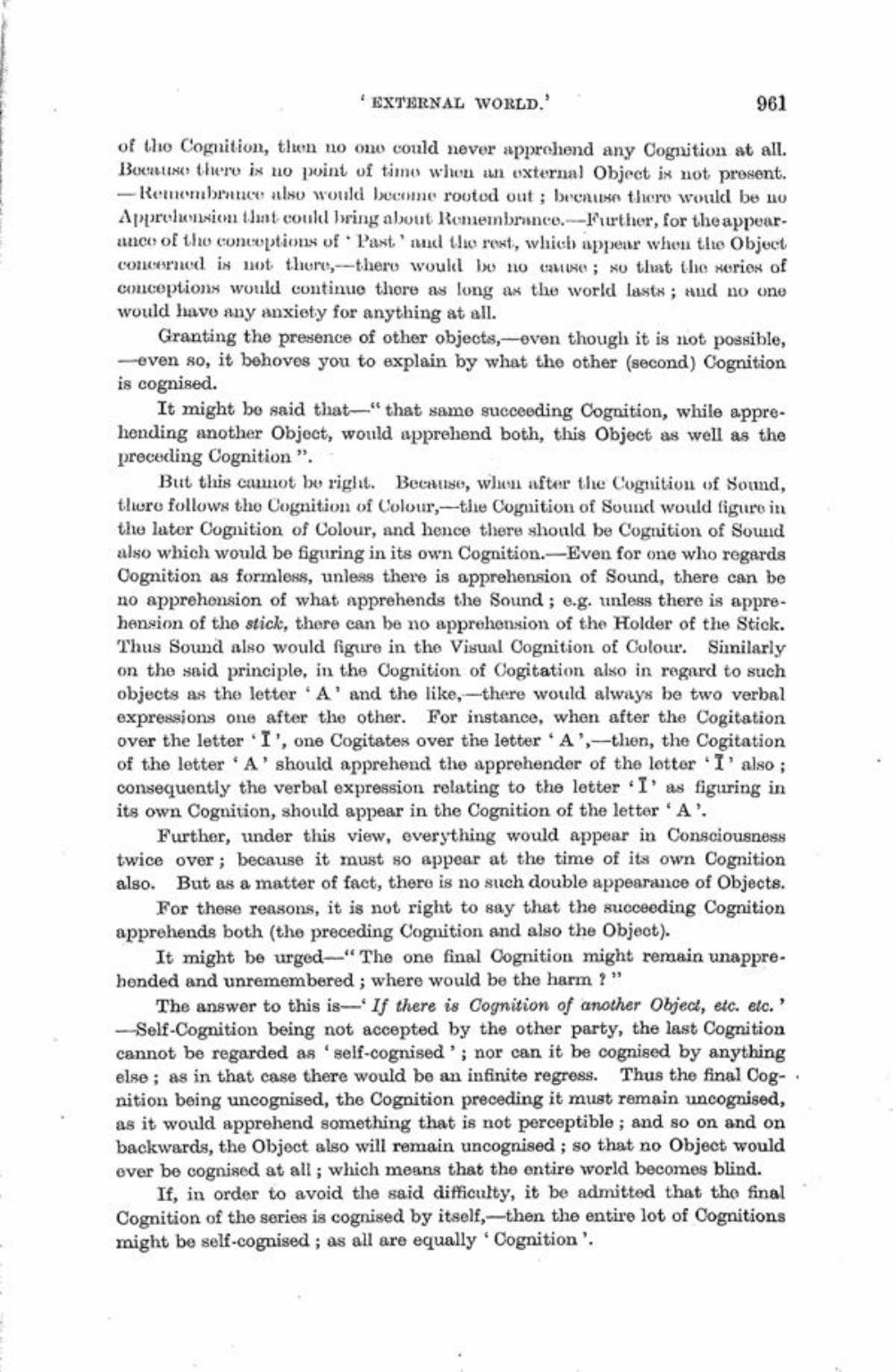________________
'EXTERNAL WORLD.
961
of the Cognition, then no one could never apprehend any Cognition at all. Boentise there is no point of time when an external Object is not present. - Remembrance also would become rootod out ; beenuse there would be no Apprehension that could bring about Romembrance. Further, for the appear. ance of the conceptions of Past' and the rest, which appear when the Object concerned is not there,--there would be no me; so that the series of conceptions would continue there as long as the world lasts; and no one would have any anxiety for anything at all.
Granting the presence of other objects,--even though it is not possible, - even so, it behoves you to explain by what the other (second) Cognition is cognised.
It might be said that," that same succeeding Cognition, while apprehending another Object, would apprehend both, this Object as well as the preceding Cognition ".
But this cannot be right. Because, when after the Cognition of Sound, there follows the Cognition of Colour,--the Cognition of Sound would figure in the later Cognition of Colour, and hence there should be Cognition of Sound also which would be figuring in its own Cognition.--Even for one who regards Cognition as formless, unless there is apprehension of Sound, there can be no apprehension of what apprehends the Sound ; e.g. unless there is apprehension of the stick, there can be no apprehension of the Holder of the Stick. Thus Sound also would figure in the Visual Cognition of Colour. Similarly on the said principle, in the Cognition of Cogitation also in regard to such objects as the letter · A' and the like,--there would always be two verbal expressions one after the other. For instance, when after the Cogitation over the letter I', one Cogitates over the letter 'A',--then, the Cogitation of the letter A' should apprehend the apprehender of the letter 'I' also ; consequently the verbal expression relating to the letter I' as figuring in its own Cognition, should appear in the Cognition of the letter 'A'.
Further, under this view, everything would appear in Consciousness twice over; because it must so appear at the time of its own Cognition also. But as a matter of fact, there is no such double appearance of Objects.
For these reasons, it is not right to say that the succeeding Cognition apprehends both (the preceding Cognition and also the Object).
It might be urged-"The one final Cognition might remain unapprehended and unremembered ; where would be the harm ? "
The answer to this is- If there is Cognition of another Object, etc. etc. Self-Cognition being not accepted by the other party, the last Cognition cannot be regarded as 'self-cognised '; nor can it be cognised by anything else ; as in that case there would be an infinite regress. Thus the final Cognition being uncognised, the Cognition preceding it must remain uncognised, as it would apprehend something that is not perceptible; and so on and on backwards, the Object also will remain uncognised; so that no Object would ever be cognised at all; which means that the entire world becomes blind.
If, in order to avoid the said difficulty, it be admitted that the final Cognition of the series is cognised by itself, then the entire lot of Cognitions might be self-cognised ; as all are equally Cognition'.




